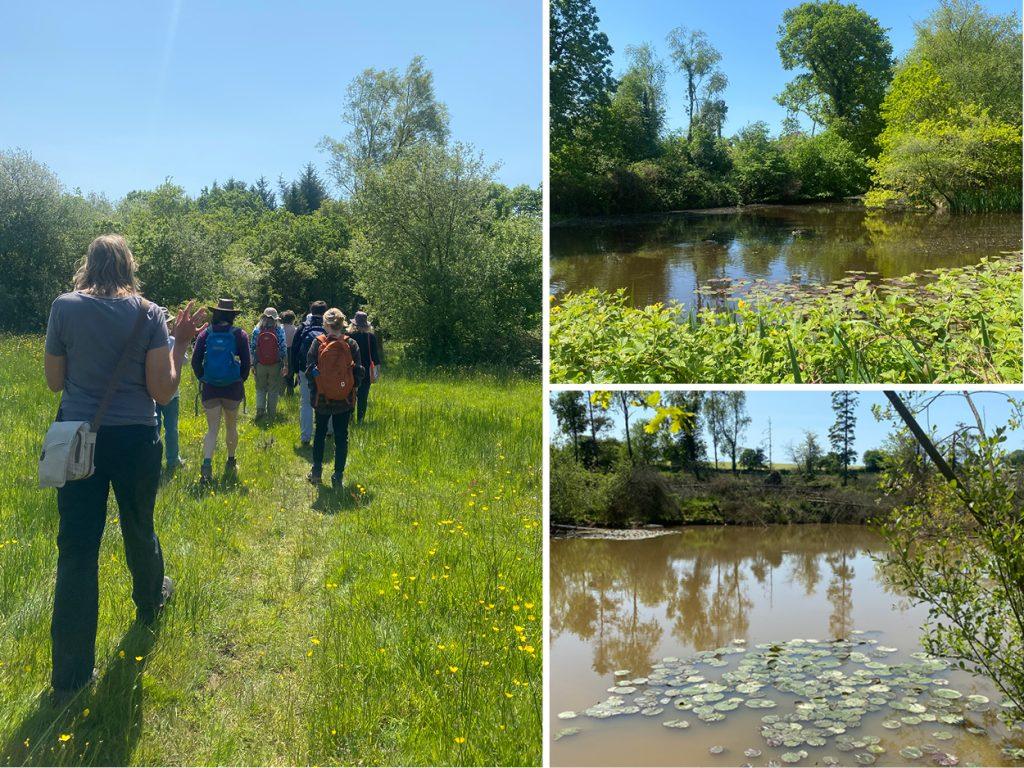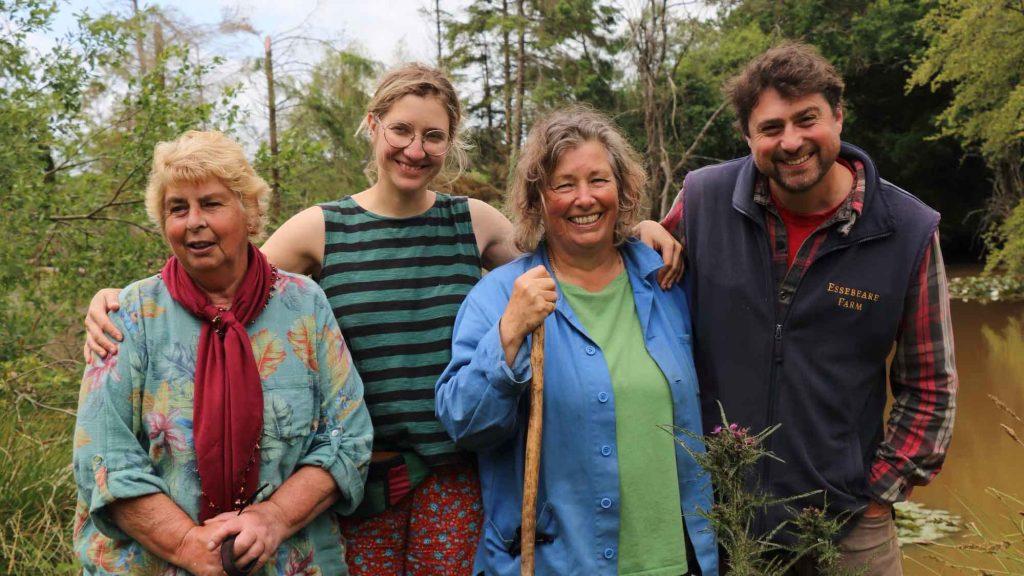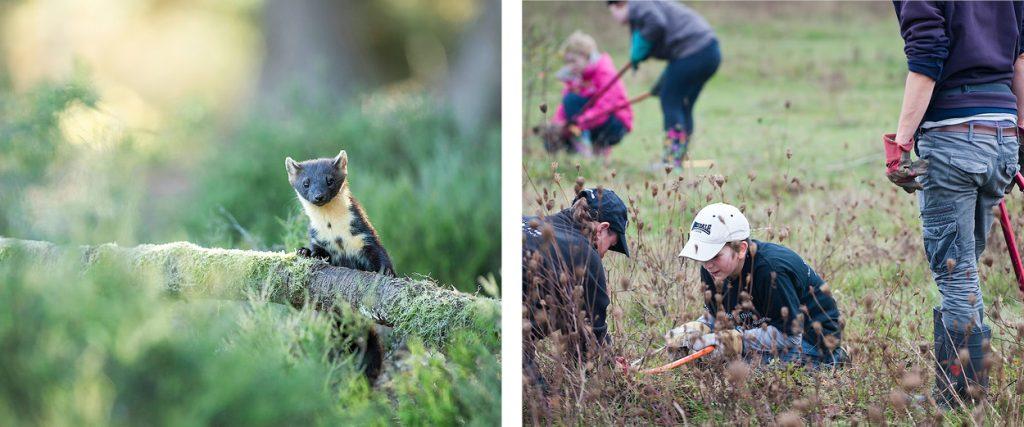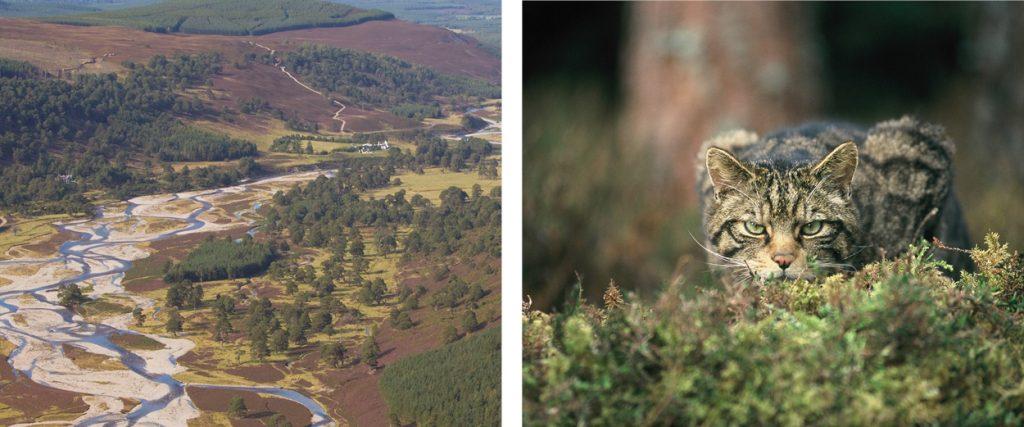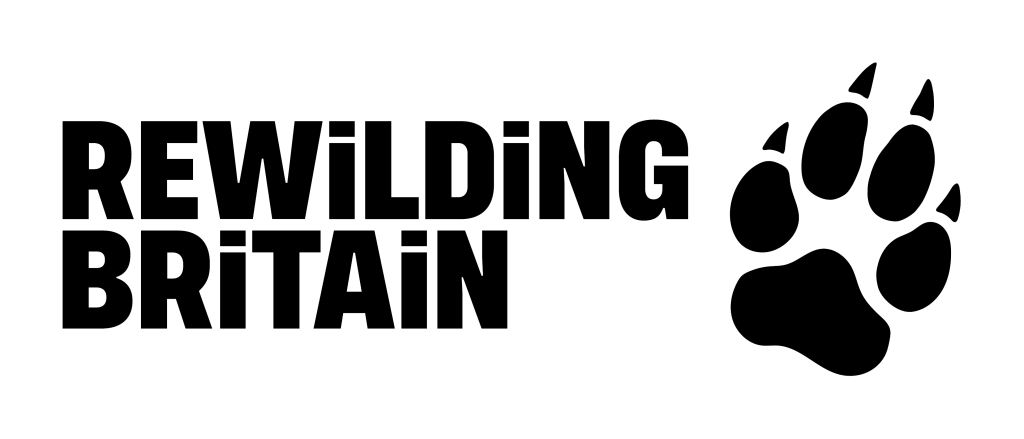Devon neighbours unite to rewild on a grand scale
June 1, 2023
Broadridge farm is part of Rewilding Britain‘s first farm cluster Dayshul Brake, a trailblazing example of three neighbouring landowners working together to rewild at scale in the heart of rural Devon.
The landowners have a shared vision for creating a complex, nature-willed landscape that encourages an increasingly rich and evolving tapestry of biodiversity.
A number of steps have been undertaken to stimulate ecological recovery across the 230-acre site, from wetland and pond creation, habitat piles and restoration of species-rich meadows through seed translocation. Natural regeneration has been encouraged, supplemented with native tree planting. Land drains have been broken up to restore hydrological processes on site and encourage natural wetlands to form.
In 2020 beavers were reintroduced to the area and harvest mice were released to bolster the existing population. A water vole reintroduction project is currently underway.
As proud supporters of the Rewilding Britain charity, Turnstyle Designs were kindly invited for a visit, along with similar charities supporting wildlife conservation and environmental projects.
Land owner Dorette Engi and her daughter Eti led the 2 hour guided walk around the site with plenty of information about the rewilding project and discussion throughout the group.
Dorette, a child psychotherapist from north London, moved to rural Devon in 2020 during lockdown. Motivated to be proactive and do something practical about the climate and wildlife crises, she bought a 92-hectare (230-acre) farm and started a process of “creative destruction”.
With plans to reintroduce beavers, pine martens, storks and maybe even a lynx, Dorette, along with neighbouring farmers, created the first Rewilding Britain cluster, rewilding project.
Find out more about the project and rewilding efforts for the Dayshul Brake team and Broadrigde Farm below:
Image credit: Rewilding Britain
"Rewilding Britain is encouraging farmers to cluster up because operating over a larger area means they can support more wildlife and provide better ecosystem services, such as storing carbon and preventing the risk of flooding."
Source: The Guardian
As well as a beaver pond, fur and poplar trees were chopped down and moved into a central field to create natural habits for bugs, smaller wildlife and shelters for animals.
Olly Walker, another part of the cluster group took over the 90-hectare family farm eight years ago and has been methodically improving it ever since.
He prides himself on his grasslands full of knapweed, bird’s foot trefoil, common cat’s ear, burnet-saxifrage and many vetches.
What once was heavily farmed agricultural land, is now a bustling spray of wild flowers, perfect for insects, small wildlife and bees.
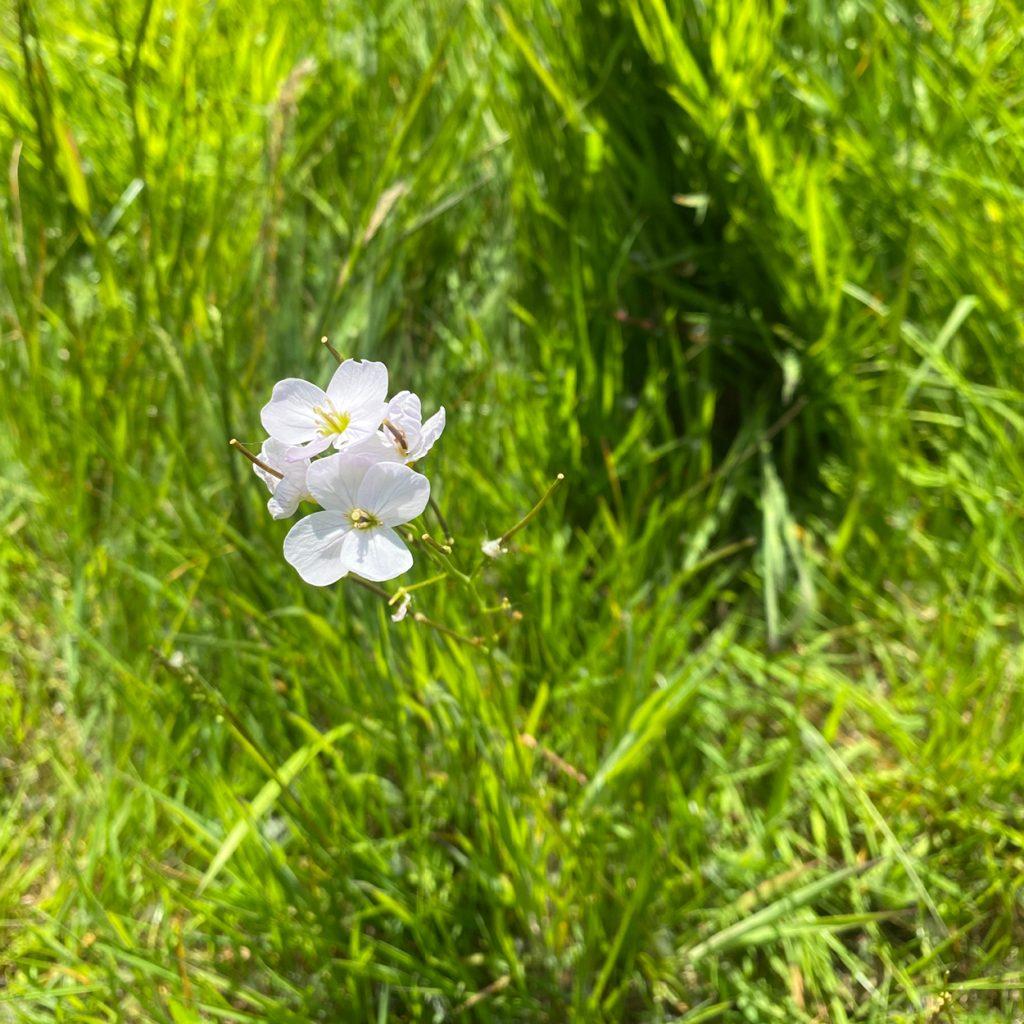
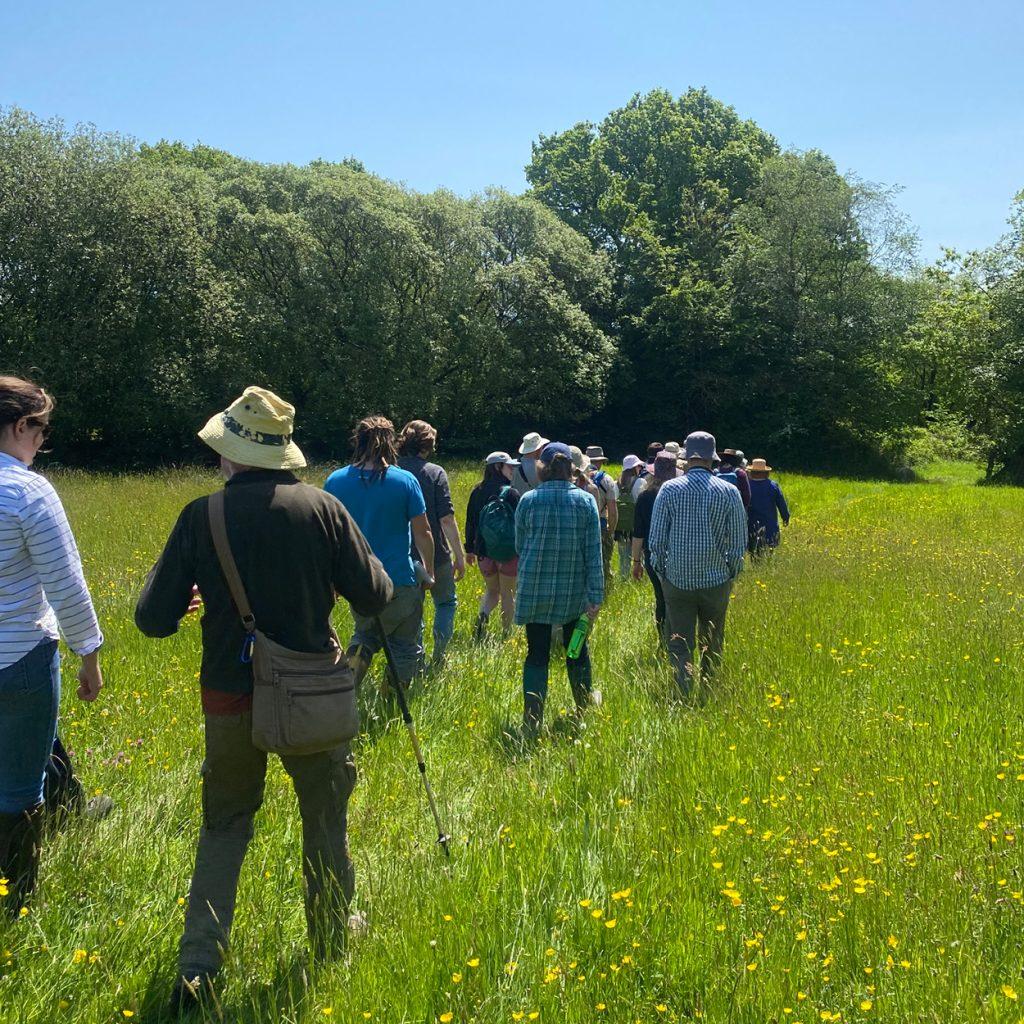
Click the video to discover the Broadrige farm and the rewilding site with some of the team from Turnstyle Designs, as well as other visitors from similar charities:
"The visit to Broadridge farm was truly inspiring. I never really knew much about rewilding and how impactful it is to our environment. It's great to see these like-minded group of individuals taking on the challenge to better our planet"
Hannah, Turnstyle Designs
WHAT IS REWILDING AND WHY IS IT IMPORTANT?
“Nature is our life support system, it’s the air we breathe, the food we eat, the water we drink, the energy that sustains us. And it’s in trouble. Wildlife is in dramatic decline. Species extinction and catastrophic climate change threaten all life on Earth. We must take action.
Nature has the power to heal itself and to heal us, if we let it. That’s what rewilding is all about; restoring ecosystems to the point where nature can take care of itself, and restoring our relationship with the natural world. Reconnecting with what matters.
Rewilding is hope for the future.”
Source: Rewilding Britain
Click here to read the FIVE PRINCIPLES OF REWILDING
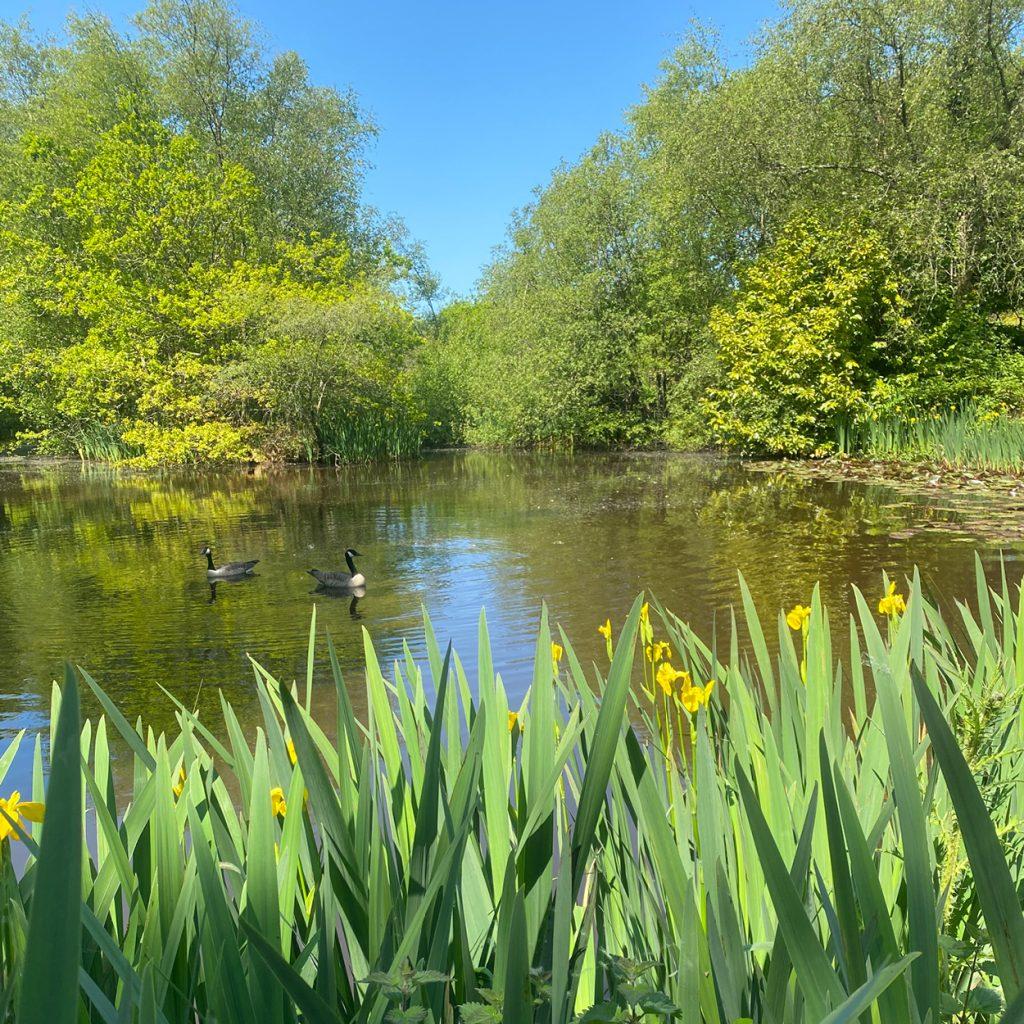
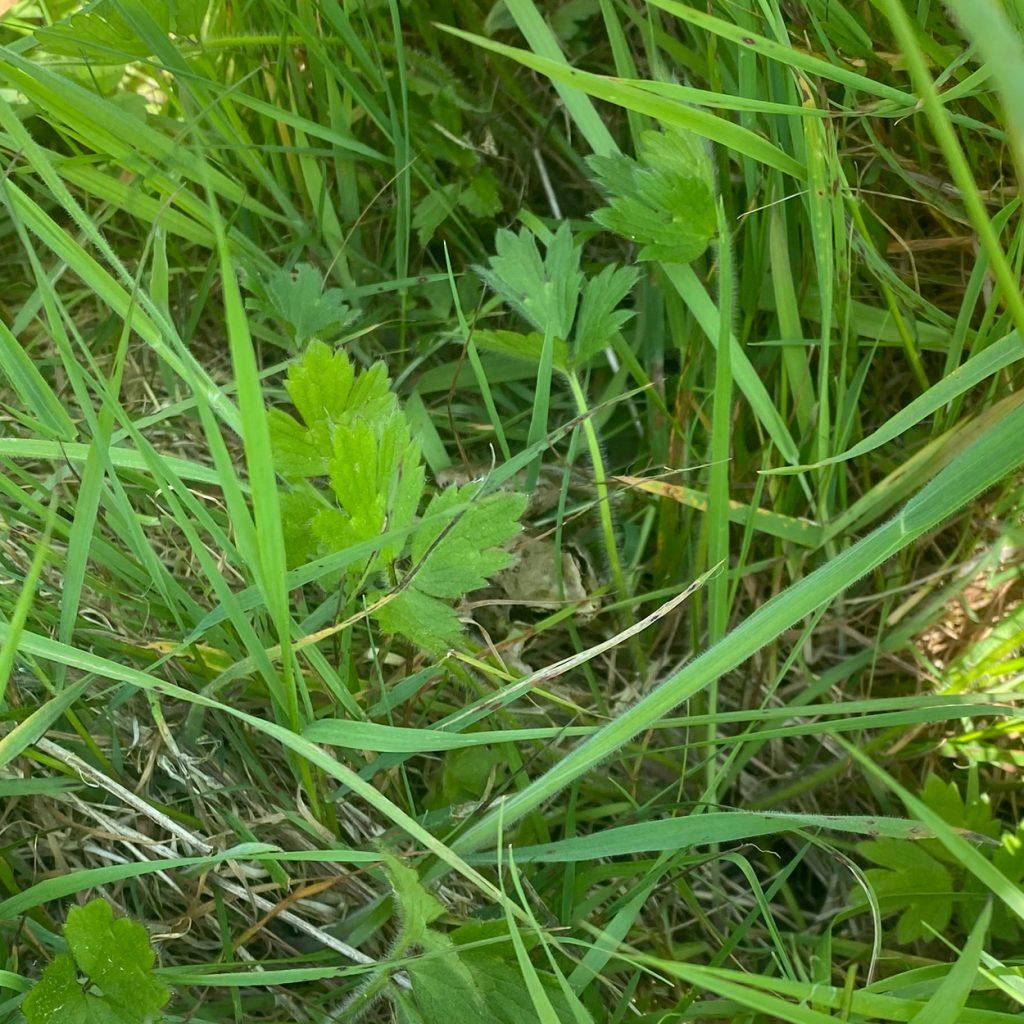
Can you spot the frog?

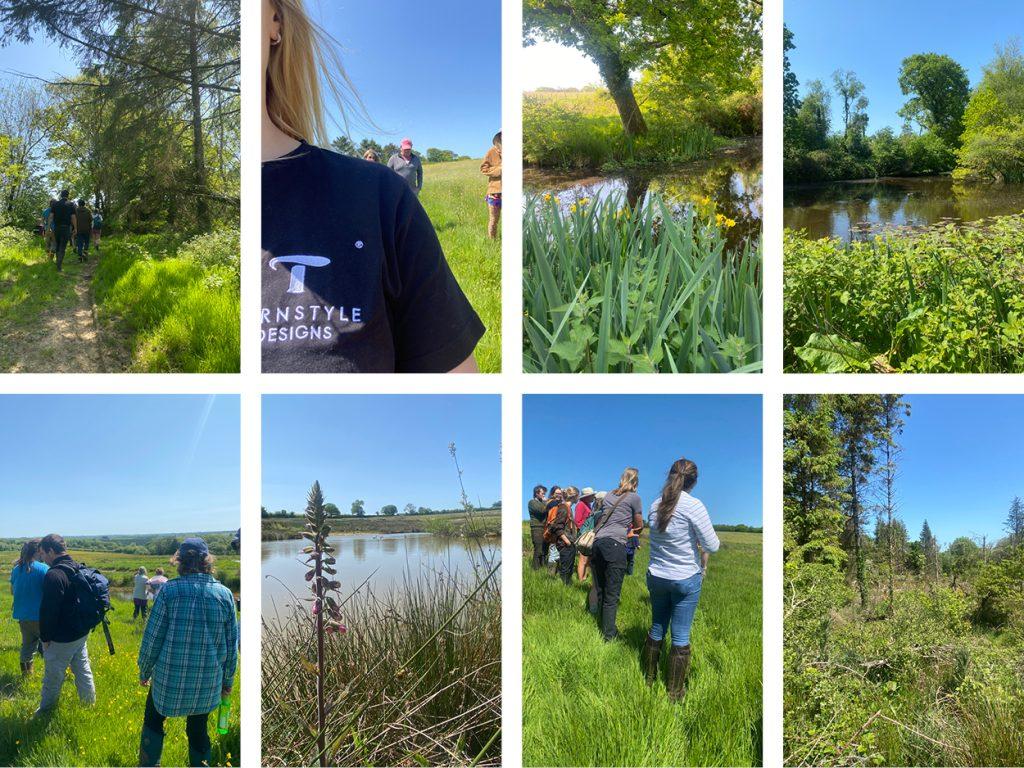
ABOUT REWILDING BRITAIN
“We can only thrive if nature thrives”
By protecting, restoring and regenerating species-rich mosaics of habitats, rewilding helps reverse biodiversity loss and bring back the abundance of Britain’s wildlife. We’ve demonstrated that rewilding also helps to mitigate climate heating by drawing down millions of tonnes of carbon from the atmosphere. We also show in our new report ‘Adapting to Climate Heating: How rewilding can help save Britain’s wildlife from extinction’, how rewilding allows wildlife to disperse and adapt as our climate heats, saving a significant number from further decline or extinction. Rewilding also presents opportunities for communities to diversify and create more resilient, nature-based economies — and reconnects us with the wonders of wild nature, improving physical and mental health.
Ecology of Rewilding from Rewilding Britain on Vimeo.



